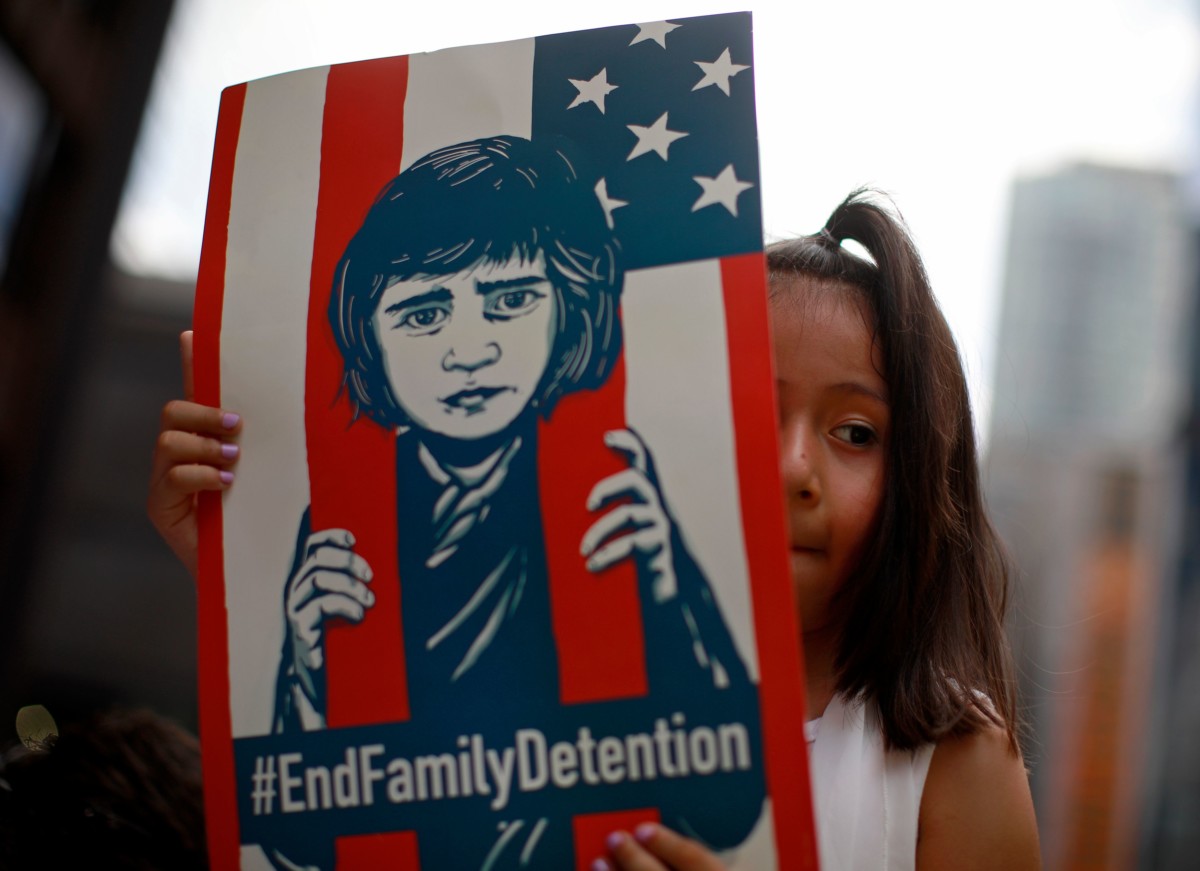Truthout is an indispensable resource for activists, movement leaders and workers everywhere. Please make this work possible with a quick donation.
From her holding cell, the Salvadoran mother could see her daughter across the room, surrounded by other children. The mother and daughter had been separated days earlier at the border, among the hundreds of migrant families caught up in the government’s new “zero tolerance” policy.
After a guard left her daughter’s cell open one day, the 15-year-old slipped out and brought her mother a small bottle of water.
“Our fingers touched through the chain-linked fence,” the mother, identified as R.M. in court filings, said in her account to lawyers. “I told her that everything was going to be OK and that I loved her very much. This was the last time that I touched my daughter.”
Soon after, R.M. was transferred to a detention center in Washington, thousands of miles from her daughter.
“I was inconsolable. I got maybe one hour of sleep per night,” she said. “I could not eat. I could not talk to anyone. All I could think about was my daughter.”
R.M. is now among the plaintiffs in a federal case seeking to require the government to provide mental health services to migrant families separated this summer at the US-Mexico border. In all, roughly 2,600 children were torn apart from their parents. More than 500 children remain in federal custody as of last week.
“Plaintiffs and their children are entitled to appropriate screening,” reads the complaint, filed in July. “These mental health services cannot be provided in the same slipshod manner as the government implemented its initial trauma inducing policy.”
The lawsuit was filed in the Central District of California by lawyers from Public Counsel, Sidley Austin LLP, and the Immigrant Advocacy and Litigation Center. Their court filings include opinions from several trauma experts that say family separation can have short- and long-term mental health consequences if left untreated. Besides the initial separation, trauma is also triggered by other factors: limited phone calls, detention in crowded cells, lack of information about the whereabouts of their loved ones.
One doctor noted that the separation “can take a toll on parents and may cause physical and mental health symptoms such as loss of sleep, loss of appetite, headaches, anxiety, depression, and suicidal ideation.”
Government attorneys argue in court records that many families have already been reunited.
“Defendants already provided appropriate psychological screening and treatment during intake, throughout detention, and prior to release,” they wrote.
A hearing on the case is scheduled for Sept. 20 in front of US District Judge John A. Kronstadt. Lawyers representing the families are also seeking class action status. Among the plaintiffs is a woman identified as J.O., who left Honduras with her 16-year-old daughter after her husband was killed by drug dealers.
“They kept the lights on all day and night, making it nearly impossible to sleep,” she said. “I was given a piece of bread and a juice box for food. There was nothing for us to do but sit on the ground and cry.”
The third plaintiff is J.P., a Guatemalan mother who was separated from her 16-year-old daughter. As officers took her daughter away, the girl fell and hit her face.
“What if I am deported without her?” J.P. said in her account filed in court. “I fear I will never see my daughter again.”
A terrifying moment. We appeal for your support.
In the last weeks, we have witnessed an authoritarian assault on communities in Minnesota and across the nation.
The need for truthful, grassroots reporting is urgent at this cataclysmic historical moment. Yet, Trump-aligned billionaires and other allies have taken over many legacy media outlets — the culmination of a decades-long campaign to place control of the narrative into the hands of the political right.
We refuse to let Trump’s blatant propaganda machine go unchecked. Untethered to corporate ownership or advertisers, Truthout remains fearless in our reporting and our determination to use journalism as a tool for justice.
But we need your help just to fund our basic expenses. Over 80 percent of Truthout’s funding comes from small individual donations from our community of readers, and over a third of our total budget is supported by recurring monthly donors.
Truthout has launched a fundraiser to add 500 new monthly donors in the next 9 days. Whether you can make a small monthly donation or a larger one-time gift, Truthout only works with your support.
